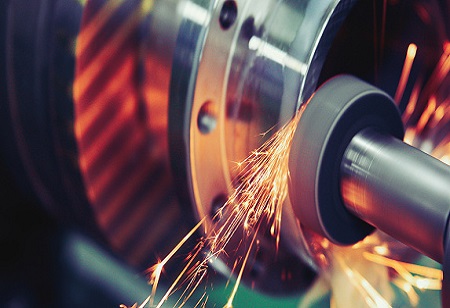Careful selection of material and processing,
precision machining of components, and the use of advanced manufacturing techniques are essential to quality in manufacturing. Precision engineering - the process of designing and manufacturing products with high levels of accuracy, repeatability, and control involves the concept of manufacturing with quality in mind. It is more than just providing more accurate parts; it also means having more confidence in what you build with high standards for quality and performance.
One of the most desired and important developments in industrial manufacturing is precision manufacturing. The use of
precision engineering in manufacturing is to increase product quality, cost efficiency, and productivity by reducing the time needed to create a product. Precision engineering helps reduce errors that lead to low yield and lost sales.
The goal of precision engineering is to create very accurate components. Precision manufacturing transforms the initial purpose and design into a functional component part. Its primary focus is on high dimensional precision, which is defined by ever-tinier parts with extremely tight tolerances. While precision manufacturing is concerned with producing the part exactly as designed and specified, engineering concentrates on the size and function of the component part in the device.
Although lower prices and a shorter time to market are insisted upon, manufacturers are constantly under pressure to retain profitability. After all, a product's development time can add months to its sales period and millions of dollars in extra revenue. What advantages does precision manufacturing provide for enhancing your output? The importance of precision manufacturing for your products is discussed below.
Fast Turnaround
Precision manufacturing is frequently a workable choice as organizations explore ways to expand automation capabilities while boosting production productivity, avoiding error, and needless expenditures. Precision machining enables producers to complete jobs at a considerably faster rate than manual production when even the
most skilled workers could make a crucial mistake that slows down production. This is in part because modern precision manufacturers use highly developed technical techniques in their automated precision machines. Because in precision manufacturing, tasks that used to take months to complete can now be completed in a matter of weeks. This simply means fewer supply chain disruptions and a quicker time to market as businesses expand to meet the steadily rising demand for components and goods.
Precision engineering is distinct from all other engineering disciplines in that it concentrates on the creation of products that repeat tasks as well as fixtures and machinery design. Working in this business, MNB Precision constantly endeavors to lower costs while raising productivity.
The diligent crew of the MNB Precision can complete tasks in a short amount of time. They also regularly expand their working expertise by learning more about a wide range of materials and procedures, as well as by updating their technology as needed. When working on any project, all health and safety protocols are followed.
Lower Costs
Considering that some tight-tolerance parts can be quite expensive, it can become costly if parts are made erroneously since faultless precision is anticipated by many highly regulated businesses. For instance, if a part's tolerance is inaccurate by just one decimal place, the cost may increase by two or three times.
Several sectors, particularly those already affected by the pandemic's operational and financial disruption, cannot afford to lose time or money on inefficient manufacturing. The good news is that prices can be significantly reduced when taking into account the cost of wasted materials and labor due to errors by employing precision manufacturing that enables accurate and quick production.
Greater Consistency
A product is only as excellent as the manufacturing process it underwent. The time it takes to market increases, quality suffers, there is more waste, and costs go up if the machine can't faithfully copy the design of the part or product. It is crucial that the output can be carried out swiftly and reliably even in high-volume manufacturing. Precision manufacturing enables businesses to produce products of consistently high quality, reducing the likelihood that they will need to repeat procedures, buy more material, or throw away pieces that were improperly designed.
Improved accuracy and reliability
While producing life-saving machinery in some industries, such as the medical device business, accuracy can be the difference between life and death. Whether you are manufacturing PPE, respirators, radiation protection gear, or endoscopies, even the smallest design flaw could have disastrous effects. Thankfully, precision manufacturing is exactly what it says it is. It can be made specifically to the manufacturer's specifications in order to guarantee that all quality control procedures are followed every time a simple or complex product is produced.
Longer operating lives result in cheaper operating expenses overall, faster production rates, and fewer inspections required. It is very dependable since it allows for mass production and reduces human mistake, which improves safety.
